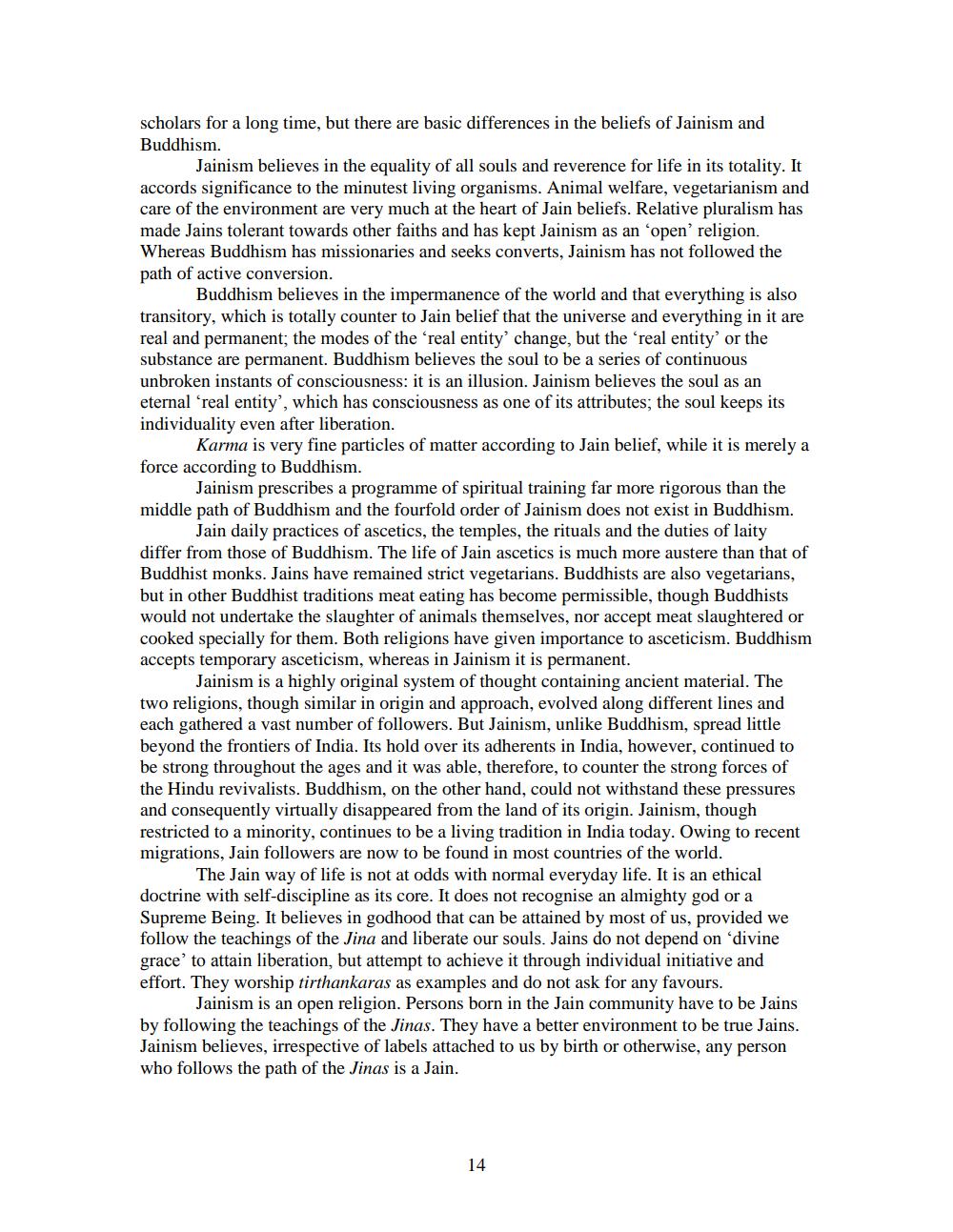________________
scholars for a long time, but there are basic differences in the beliefs of Jainism and Buddhism.
Jainism believes in the equality of all souls and reverence for life in its totality. It accords significance to the minutest living organisms. Animal welfare, vegetarianism and care of the environment are very much at the heart of Jain beliefs. Relative pluralism has made Jains tolerant towards other faiths and has kept Jainism as an 'open' religion. Whereas Buddhism has missionaries and seeks converts, Jainism has not followed the path of active conversion.
Buddhism believes in the impermanence of the world and that everything is also transitory, which is totally counter to Jain belief that the universe and everything in it are real and permanent; the modes of the 'real entity' change, but the 'real entity' or the substance are permanent. Buddhism believes the soul to be a series of continuous unbroken instants of consciousness: it is an illusion. Jainism believes the soul as an eternal 'real entity', which has consciousness as one of its attributes; the soul keeps its individuality even after liberation.
Karma is very fine particles of matter according to Jain belief, while it is merely a force according to Buddhism.
Jainism prescribes a programme of spiritual training far more rigorous than the middle path of Buddhism and the fourfold order of Jainism does not exist in Buddhism. Jain daily practices of ascetics, the temples, the rituals and the duties of laity differ from those of Buddhism. The life of Jain ascetics is much more austere than that of Buddhist monks. Jains have remained strict vegetarians. Buddhists are also vegetarians, but in other Buddhist traditions meat eating has become permissible, though Buddhists would not undertake the slaughter of animals themselves, nor accept meat slaughtered or cooked specially for them. Both religions have given importance to asceticism. Buddhism accepts temporary asceticism, whereas in Jainism it is permanent.
Jainism is a highly original system of thought containing ancient material. The two religions, though similar in origin and approach, evolved along different lines and each gathered a vast number of followers. But Jainism, unlike Buddhism, spread little beyond the frontiers of India. Its hold over its adherents in India, however, continued to be strong throughout the ages and it was able, therefore, to counter the strong forces of the Hindu revivalists. Buddhism, on the other hand, could not withstand these pressures and consequently virtually disappeared from the land of its origin. Jainism, though restricted to a minority, continues to be a living tradition in India today. Owing to recent migrations, Jain followers are now to be found in most countries of the world.
The Jain way of life is not at odds with normal everyday life. It is an ethical doctrine with self-discipline as its core. It does not recognise an almighty god or a Supreme Being. It believes in godhood that can be attained by most of us, provided we follow the teachings of the Jina and liberate our souls. Jains do not depend on 'divine grace' to attain liberation, but attempt to achieve it through individual initiative and effort. They worship tirthankaras as examples and do not ask for any favours.
Jainism is an open religion. Persons born in the Jain community have to be Jains by following the teachings of the Jinas. They have a better environment to be true Jains. Jainism believes, irrespective of labels attached to us by birth or otherwise, any person who follows the path of the Jinas is a Jain.
14




